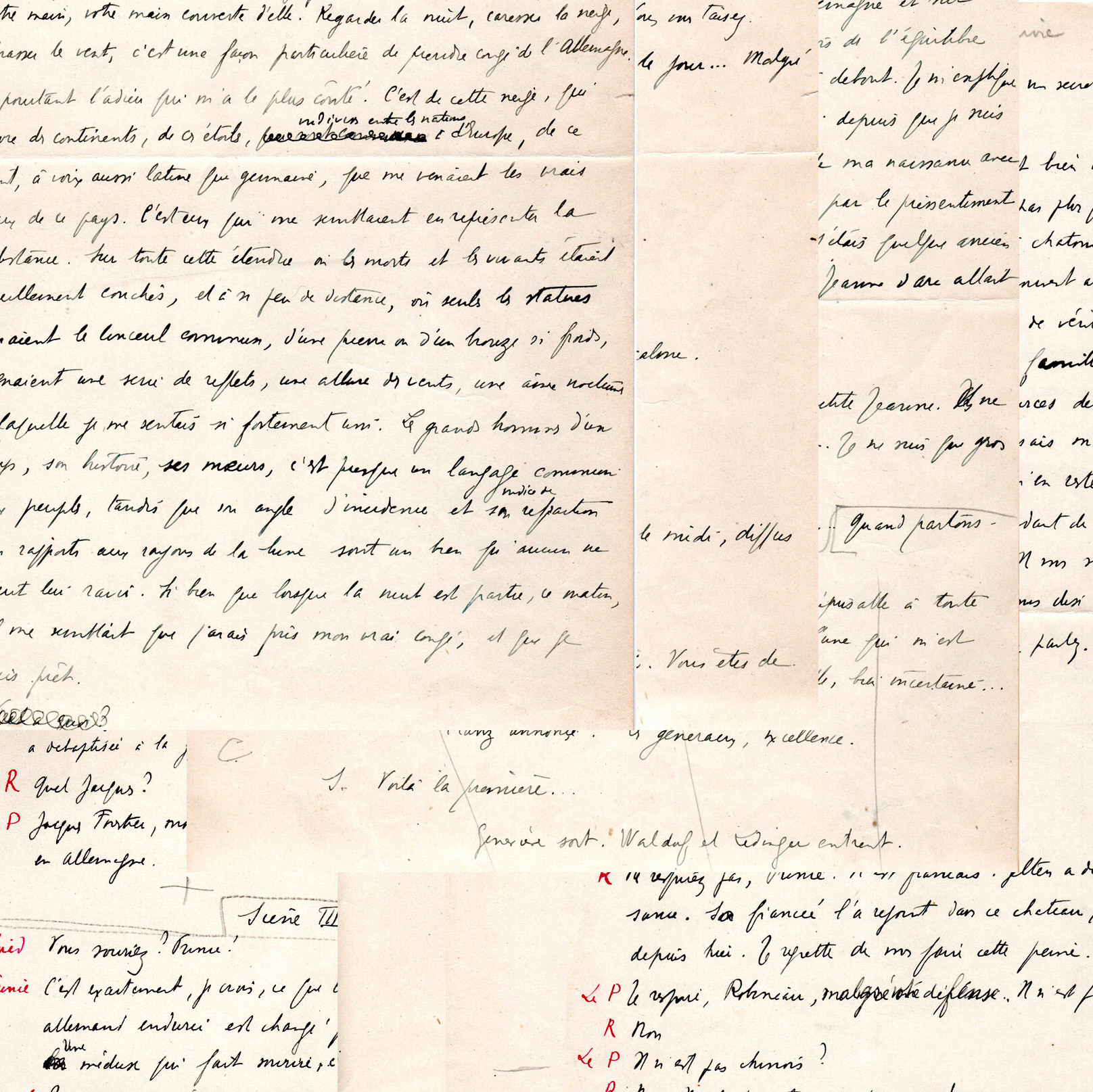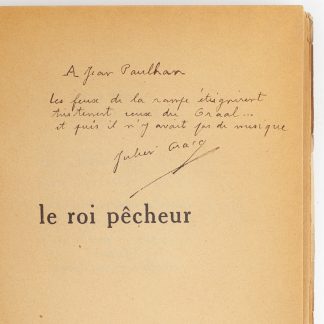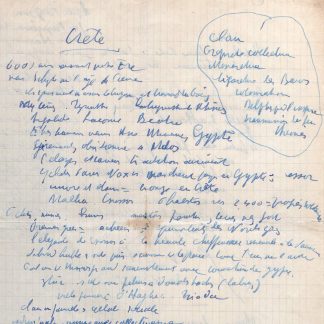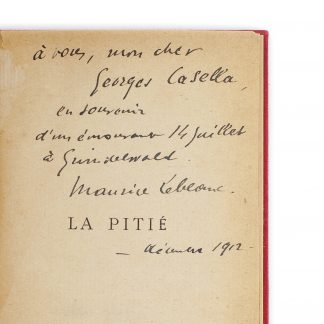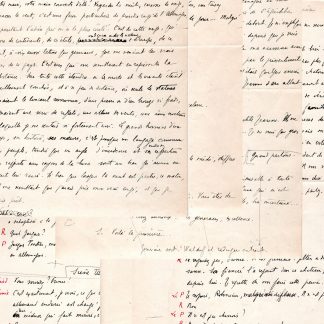Description
SIGNED AUTOGRAPH MANUSCRIT (8 pages) consisting of an introduction and three scenes.
The text prepared for the magazine the Autograph Manuscript was in fact published in part in the "Innovation"from the Journal Comœdia (18 December 1928) with the introductory text:
"Third Intermission of Siegfried :
The intermission between the acts of Siegfried seemed to me in itself an incomprehensible void, so for the ideal performance I have inserted three intermissions. The first is the Angel of Parliament where Siegfried imposes his constitution on Germany. The second, called Siegfried's Entertainment, shows the spectator the Revolution in the Royal Palace. The third, which I have not yet had the time to complete, shows Siegfried between the day when it was revealed to him that he was French and the morning when he left, determined above all by the idea that fate had played him, and that he was old enough to find his own reasons for loving Germany. It was this last intermission that the Autograph manuscript would like to publish today. Jean Giraudoux
This third intermission consists of three scenes of dialogue between two characters, :
- Scene I, between Siegfried and Genenviève - some of whose lines can be found in the final scene of the play printed a few months later in June 1928 (act IV, scene 5) - 3 pages, the last paragraph crossed out, with the words "not to be reproduced" in the margin, does not appear in the text of Comœdia.
- Scene II (3.5 pages), between Robineau and the Prince of Saxony Altdorf. The latter character, who does not appear in the play published by Grasset in 1928, was however mentioned by Giraudoux in Siegfried and the Limousin best-selling novel, published in 1922. The scene begins with a tirade about the truth, with the Prince trying to find out Robineau's secret:
"The Prince : Never mind...I find that secrets have been tiring of their secret function for some time now. Truth, no more than men, has no strength to contain itself. All you have to do is tickle a human being, a nation, with the tip of your finger, and they immediately experience - it used to take a long embrace - access after access to the truth. Even as far as the Saxe-Altdorfs are concerned, of the twenty family or state secrets that my father passed on to me intact from thirty sources hidden from the eyes of men, from which alone I would kill and draw my honour and my reason for being sovereign, it is only just that I have one or two left. You will see that I, the descendant of the oldest family in Europe, will be buried without a secret. You would only have to insist a little, my dear Robineau, for me to tell you the secret of the Iron Mask and that of Rodolphe."
- scene III (1 page) between Siegfried and the Prince of Saxony Altdorf, was not published in Comœdia, probably for reasons of space, as indicated by a note on the last blank page". make cuts at the bottom so as to [à] no higher than 25 cm". Siegfried tells the Prince his plan to disappear after learning that he is French:
" Anyway, it's decent to run at the time of death, because I'm going to die in front of you now. A fake death, of course. All my Amos say not to encourage scandal. Waldrof and Fontgeloy will say that I was killed in the riot and in the triumph of our cause. [...]" "But according to the Prince, it's a "Profound error", "ustupid project"setting out some arguments, he concludes: "Vou know what young people think of my two countries. The question of their concord is the only serious question in the universe."
The two-colour text includes a few erasures and corrections, and was never published in volume.
RARE DOCUMENT.

